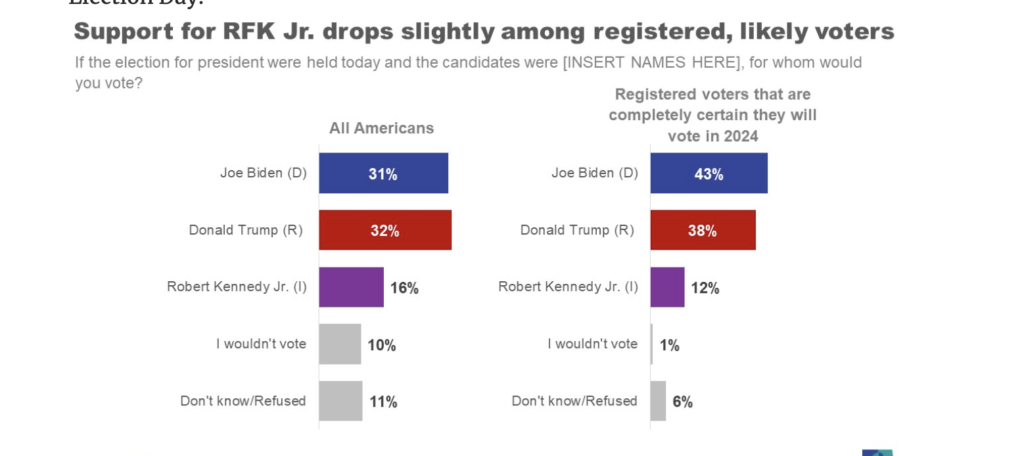In my History of Third Party Candidates paper, I wrote about the history of third party candidates in the presidential election and how this information alters or changes my perspective of Robert F. Kennedy jr. running as an independent candidate in the 2024 presidential election. Before I did my research on this subject, I was a little confused why Kennedy was even attempting to run in the election knowing that he likely wouldn’t receive enough votes compared to his competitors, current President Joe Biden and former President Donald Trump. But after I researched the topic, I realized that for independent candidates, it’s sometimes not about winning the election but instead gaining a following and taking votes away from competitors to spoil the election. Also, through running in the election, third party candidates can express their ideas and policies that sometimes can influence the way America views these ideas in the future. So I began my research by using the library guide provided at Westminster to access tier one and other credible sources and databases. I found two tier one sources, Jstor and Britannica through this library guide which were my two most crucial sources for research. Through these sources, I gained a strong background knowledge of the history of third party candidates and a lot of information about Robert F. Kennedy’s background and his motivation to run for president as an independent candidate. Following this, I then did a google search about my topic. There was lots of information out there and I was very strategic about finding websites and sources that were known for having credible, unbiased opinions. I found an article posted on Slate News and Politics that covered lots of important third party candidates in the history of the presidential election. After doing research about the credibility of Slate, I found that Slate has a slightly left wing bias for its current news but provides strong, credible historic reports. So, I deemed this source a reliable tier two source. Next, I researched how Robert F. Kennedy is portrayed in the media and what his popularity is. Due to Kennedy having more support from Republicans although he once ran as a democrat and his family’s democratic background, I have to stay alert for politically biased websites. Due to this, I mostly stayed away from the internet and relied on Britannica for most of my information about Kennedy to ensure that it was bias free. My last source was a website that generally provided an overview of Kennedy’s popularity and what percent of the votes he is predicted to receive. Since this was a less known website, I did a lot of cross referencing to the information provided and eventually deemed this a reliable source. In conclusion, since I was researching a topic revolving around a current presidential candidate, I had to be very intentional and careful about where my information came from and what websites I used to gather information. In today’s world more than ever, we have to be very cognizant of biased information especially when researching about a current political figure.
Abramson, Paul R., John H. Aldrich, Phil Paolino, and David W. Rohde. “Third-Party and Independent Candidates in American Politics: Wallace, Anderson, and Perot.” Political Science Quarterly 110, no. 3 (1995): 349–67. https://doi.org/10.2307/2152568.
Britannica School, s.v. “Robert F. Kennedy, Jr.,” accessed May 17, 2024, https://school-eb-com.westminster.idm.oclc.org/levels/high/article/Robert-F-Kennedy-Jr/639108
Bauer, Addicen, and Molly Olmstead. “A Romp through History’s Most Successful
Third-Party Presidential Candidates.” Slate. Last modified July 3, 2023.
“Who’s Voting for Robert Kennedy Jr.?” Ipsos. Last modified March 22, 2024.
Accessed May 17, 2024. https://www.ipsos.com/en-us/
whos-voting-robert-kennedy-jr.
Houston





